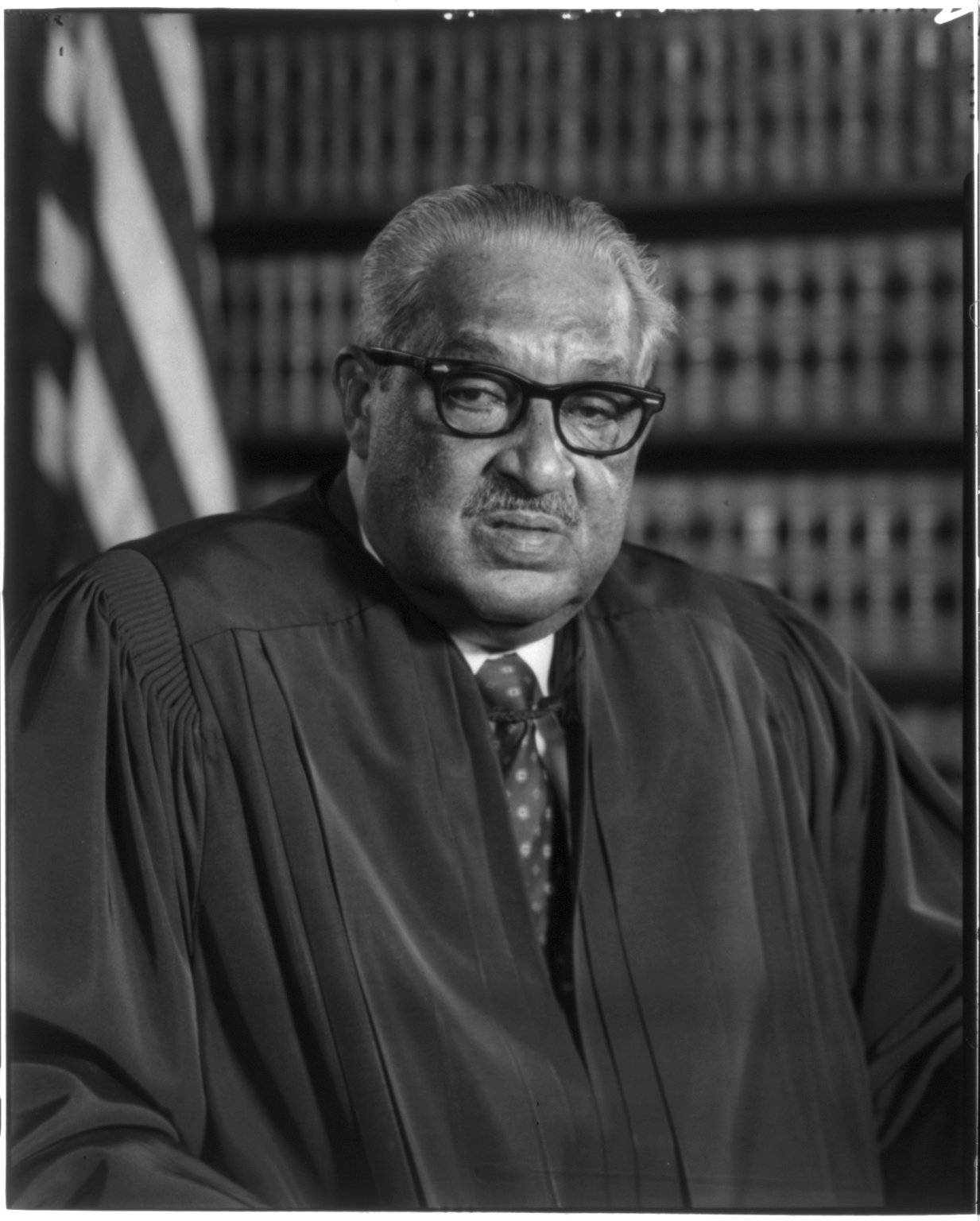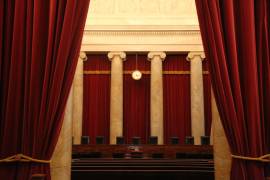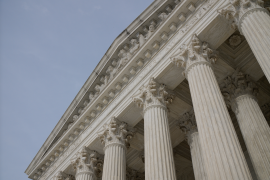As President Obama marks his last Constitution Day in office, he can be proud of his record for nominating more diverse judges than his predecessors. In reaching milestones like adding 11 openly gay or lesbian judges, the President no doubt drew inspiration from a portrait that hangs in the Oval Office.
That portrait is of Thurgood Marshall, the first African-American to serve on the Supreme Court.
In his famous speech marking the 200th anniversary of the U.S. Constitution, Marshall said:
The men who gathered in Philadelphia in 1787 . . . could not have imagined, nor would they have accepted, that the document they were drafting would one day be construed by a Supreme Court to which had been appointed a woman and the descendent of an African slave. “We the People” no longer enslave, but the credit does not belong to the Framers. It belongs to those who refused to acquiesce in outdated notions of “liberty,” “justice,” and “equality,” and who strived to better them.
The critical note Marshall struck was far removed from the dominant narrative of the bicentennial. As the New York Times reported at the time: “His remarks contrasted sharply with the lavish praise of the Framers' wisdom and devotion to liberty and justice by figures including President Reagan and [Chief Justice] Warren E. Burger . . .”
To the bicentennial, as to the Court, Marshall brought a perspective that was vital to the interpretation of the Constitution yet had been largely ignored.
It was a perspective informed by his life as a black man raised in segregated Baltimore, where he was unable to use a public restroom that was reserved for whites. It was the perspective of a civil rights lawyer who successfully argued the landmark case Brown v. Board of Education, and a criminal defense attorney who faced a lynch mob while trying to defend black clients.
Above all else, it was the perspective of a thoughtful and empathetic jurist, deeply committed to fairness and to delivering the Constitution’s promise of liberty, justice and equality for all.
For 24 years, Marshall brought his perspective to bear on the bench. From representing black clients in court, he understood that arbitrary and discriminatory practices would continue without greater checks on prosecutors and law enforcement
So, when the Court in the 1986 decision Batson v. Kentucky declared unconstitutional the use of peremptory challenges to remove a potential juror based on race, Marshall agreed with the decision but argued that “end[ing] the racial discrimination that peremptories inject into the jury selection process . . . can be accomplished only by eliminating peremptory challenges entirely.”
His words of caution resonated this year as the Court once again addressed the persisting problem of racial discrimination in jury selection. In Foster v. Chatman, the Court declared unconstitutional prosecutors’ racially motivated use of peremptory strikes to unseat all four black members of a jury pool, leaving an all-white jury.
As Justice Stephen Breyer wrote in a 2005 opinion: “Twenty years ago Justice Thurgood Marshall warned that the test of Batson v. Kentucky would fail to ferret out unconstitutional discrimination in the selection of jurors. In my view, history has proved Justice Marshall right.”
When Marshall retired from the Court in 1991, Justice Sandra Day O’Connor, a Reagan appointee and the first woman on the Court, said:
His was the eye of a lawyer who saw the deepest wounds in the social fabric and used law to help heal them. His was the ear of a counselor who understood the vulnerabilities of the accused and established safeguards for their protection. His was the mouth of a man who knew the anguish of the silenced and gave them a voice.
Back then, Marshall was the only black person who had ever sat on the Court, and O'Connor was the only woman. Today, the Court includes two people of color and three women.
President Obama has made significant strides in expanding the diversity of the nation’s highest courts. For the first time, a majority of Circuit judges are minorities and women. This diversity should be celebrated because it may yield judges like Justice Marshall. The Constitution needs them.





